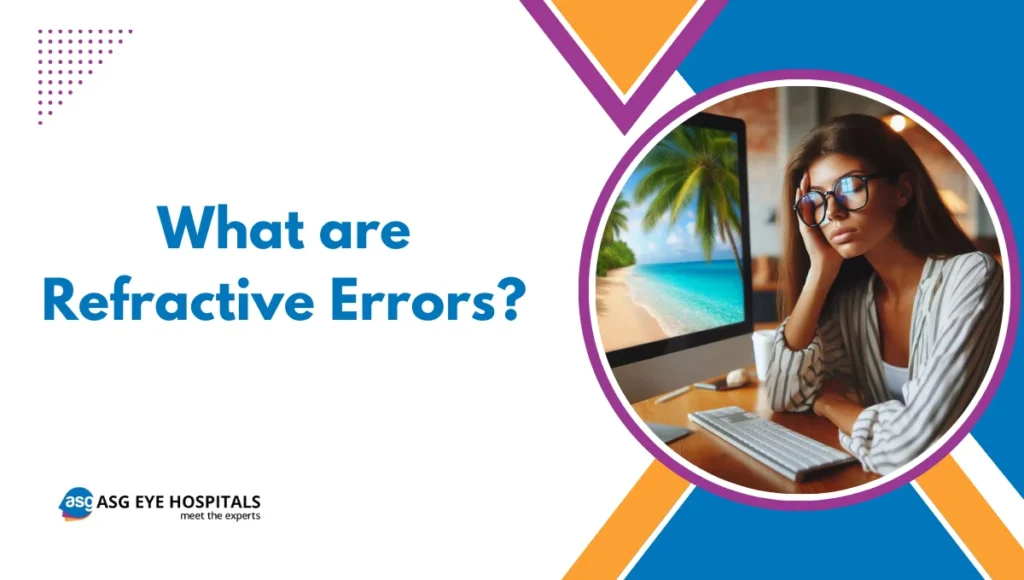When we think about vision, we take vision for granted until vision starts to blur or diminish. Refractive errors are among the most common causes of blurry vision, affecting millions worldwide. Let’s understand what refractive errors are, their causes, treatment options, and the types of refractive errors, crucial for maintaining healthy eyesight. Keep reading this blog to learn a complete overview of it.
What is a Refractive Error?
In simple terms, a refractive error occurs when the shape of the eye prevents light from focusing directly on the retina, leading to blurred vision. The eye’s ability to refract or bend light determines how well we can see objects. When this bending of light doesn’t happen precisely, vision problems occur.
Causes of Refractive Errors
Several factors contribute to refractive errors, including genetics, environmental factors, and lifestyle choices. Common causes include:
- Genetics: Refractive errors often run in families, suggesting a genetic component.
- Eye Anatomy: The shape of the eye’s cornea or lens can influence how light is refracted.
- Age: Changes in the eye’s structure and flexibility, such as presbyopia, commonly occur with age.
- Environmental Factors: Long-term exposure to screens or inadequate lighting can strain the eyes, exacerbating refractive errors.
- Systemic Conditions: Certain health conditions like diabetes can affect vision and contribute to refractive errors.
Treatment of Refractive Error
Fortunately, refractive errors can often be corrected with various treatment options, including:
- Prescription Eyeglasses or Contact Lenses: These are the most common and non-invasive methods to correct it.
- Refractive Surgery: Procedures like LASIK (Laser-Assisted In Situ Keratomileusis) reshape the cornea to improve vision.
- Orthokeratology (Ortho-K): This involves wearing specially designed contact lenses overnight to reshape the cornea temporarily.
- Phakic Intraocular Lens Implants: In cases where LASIK is not suitable, implantable lenses can be inserted to correct vision.
Types of Refractive Errors
Refractive errors are classified into several types, each with its distinct characteristics:
- Myopia (Nearsightedness): Close objects appear clear, but distant objects are blurry.
- Hyperopia (Farsightedness): Distant objects may be seen more clearly than near objects.
- Astigmatism: Blurred vision caused by an irregularly shaped cornea or lens.
- Presbyopia: Age-related difficulty in focusing on near objects due to decreased flexibility of the lens.
Refractive Surgeries:
For those seeking a permanent solution to refractive errors, surgical options are available:
- LASIK: This popular procedure uses a laser to reshape the cornea, correcting refractive errors.
- PRK (Photorefractive Keratectomy): Almost similar to LASIK, but during this procedure the outer layer of the cornea is removed before reshaping it.
- SMILE (Small Incision Lenticule Extraction): A minimally invasive procedure that corrects myopia using only a femtosecond laser.
While refractive surgeries offer convenience and freedom from glasses or contacts, they may not be suitable for everyone. Consulting with an eye care professional is essential to determine the most appropriate treatment option based on individual needs and eye health.
In conclusion, refractive errors are common vision problems that can significantly impact one’s quality of life. Understanding their causes, treatment options, and types is crucial for effectively managing and correcting these issues. Whether it’s through prescription eyewear, contact lenses, or refractive surgery, modern advancements in eye care offer solutions to help individuals achieve clearer vision and a better quality of life.

